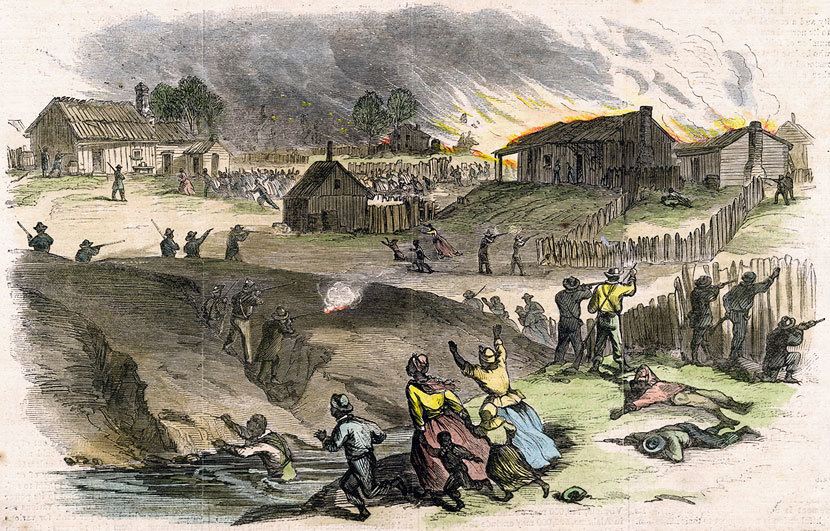Cynthia Townsend (fl. 1845–1870)
From Reconstruction: Voices from America’s First Great Struggle for Racial Equality

Among the tragedies and cruelties of the Reconstruction era, two of the worst were the riots targeting newly freed black residents in Memphis and New Orleans, both of which occurred in 1866. In Memphis, forty-six were killed and nearly one hundred shot or seriously burned, many of them women, children, and the elderly. The miserable irony is that the gunshot injuring a white police officer (eventually killing him) and sparking the three-day looting and shooting frenzy was self-inflicted.
Cynthia Townsend was one of the witnesses that testified before the Congressional committee assigned to investigate the incident. She recounts a catalog of horrors, including descriptions of women and children who were mercilessly shot unless they went back into burning buildings that had been torched by looters. Throughout, the city’s police officers and firefighters participated in and, in some cases, coordinated the attacks.
Townsend’s testimony, which we present here as our Story of the Week selection, is included in the new Library of America collection Reconstruction: Voices from America’s First Great Struggle for Racial Equality, which recently arrived from the printer and will be in bookstores January 29.



